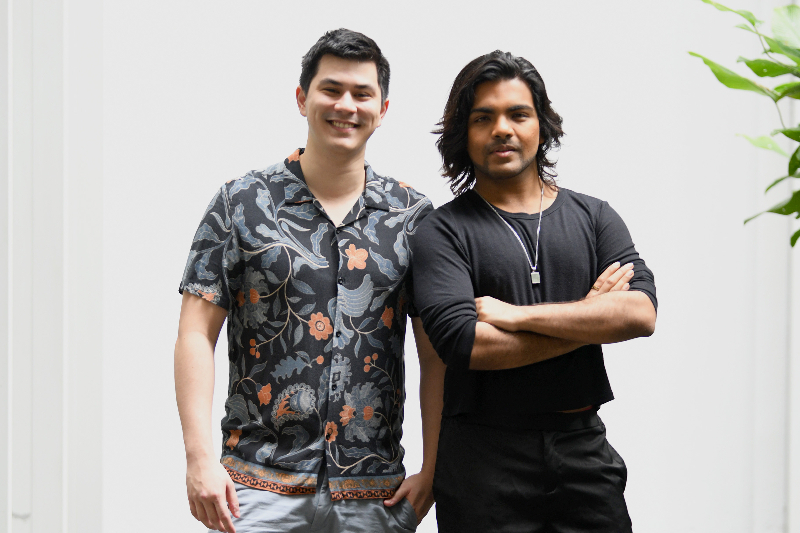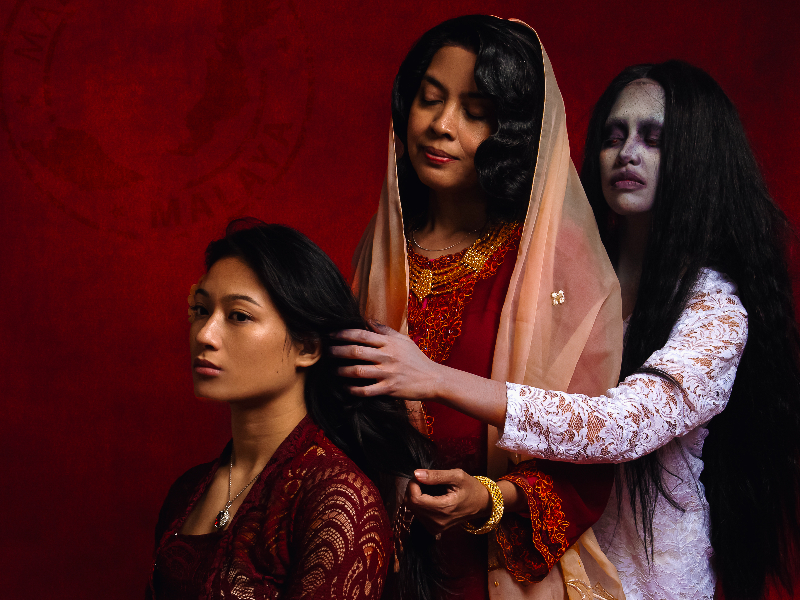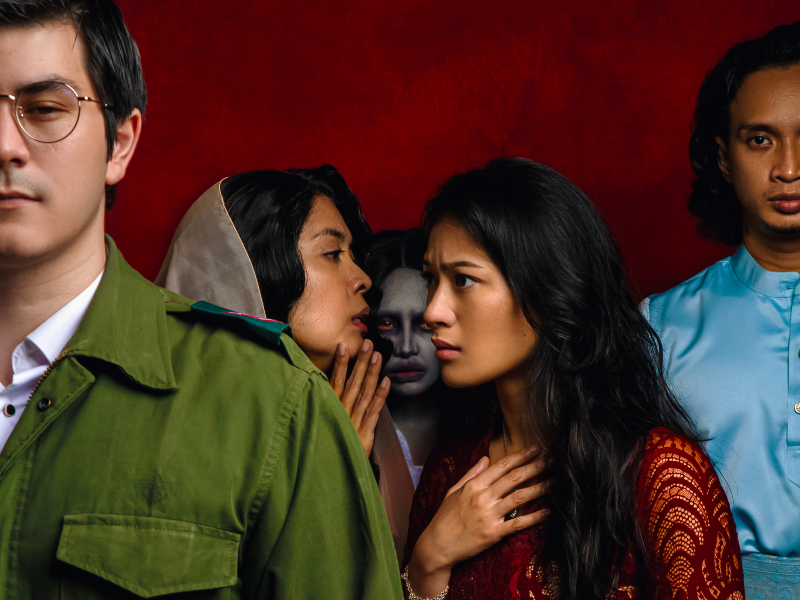
Liver & Lung promises a stellar production with a star-studded cast (Photo: Liver & Lung)
"Storytelling is an impactful way to inspire sustainable societal change,” says Shafeeq Shajahan, founder of Liver & Lung Productions. At the age of 20, he established the Malaysian-British theatrical company in 2014 after completing his studies in economics at University College London. In between attending classes, he participated in and directed theatre productions.
A strong believer in our legends and stories, he made it his mission to drive Malaysia towards becoming the creative cultural hub of Asia.
“Liver & Lung has always been about amplifying our local stories on the global stage and making them relevant and relatable to contemporary audiences. I use my work to drive thoughts, while paying homage to the stories and people that came before us.
“I was quite an angsty teenager back in university,” Shafeeq divulges.
At some point, while pondering over his emotions, he realised where those feelings were coming from. “My breath, my lungs and my hati, which is the liver. In Victorian times, they would never say, ‘I love you with all my heart’. They would say, ‘I love you with all my liver’, which is why we call hati ‘liver’ and not jantung. When I create theatre and stories, I want people to feel with their hati and lungs.”
Operating in Kuala Lumpur and London — where Shafeeq works as head of data processing in machine learning at a technology firm — Liver & Lung relies on collaborations with actors, singers and musicians to produce plays across Malaysia, Singapore and London. Nine years since its inception, the theatre group has presented a variety of musicals and films including Sepet The Musical, Leila/Laila, Mahsuri (& Other Peculiar Tales) and a trilogy, Relived, and won several awards, such as Best Direction for Sepet in 2020.
20230201_peo_shafeeq_shajahan_kai_chalmers_3_lyy.jpg

The 29-year-old has worked on different genres of musicals and films, but never tried producing a horror musical. Why did he finally choose to explore this now?
“There’s something about Malaysia and its obsession with horror. Everyone has a story about jinn (genies) or bomoh (Malay shaman). Horror also tells us a lot about what our society’s insecurities and fears are. For example, British horror tells you its society is fearful of itself like Sweeney Todd: The Demon Barber of Fleet Street and Jack the Ripper, whereas American films like The Texas Chainsaw Massacre and The Cabin in the Woods are all about fear of things from the outside.
“Meanwhile, we are obsessed with the supernatural, revenge and intergenerational trauma and curses. That says something about how we view our relationship with our children and parents. I want to use this genre to explore our society.”
Deeply rooted in Malaysian culture, Melur The Musical tells the story of two women fighting to survive a rapidly changing world. It follows the conflicts they face after marriage, one to a political revolutionary, and the other to a British High Commissioner with an agenda for the country.
Kai Chalmers, who plays the antagonist in Melur, says everyone likes the thrill of knowing why something is scary and makes them feel uncomfortable and disturbed. “Pontianak (a vengeful female vampire or ghost) is not just someone who wants to suck your blood. It’s horror because someone was brutally killed and experienced unimaginable pain. Maybe something happened that caused her to want to come back and inflict this pain and suffering on others.”
The main characters in the narrative are named after two flowers that are strongly associated with pontianak: melur (jasmine) and cempaka (Magnolia champaca).
10._best_friends_melur_and_cempaka_are_haunted_by_a_supernatural_creature1.jpg

“I like to view pontianak as a feminist symbol. I believe she was feminist before feminism was cool in the West. I reject the idea that Western civilisation conceived feminism because we have feminist stories way before that,” says Shafeeq.
The director uses Melur’s character to amplify the feminine voice and present the struggles that women go through in society. Packed with remarkable characters, drama and comedy, the musical is set during the Malayan Emergency, between the late 1940s and 1960. When asked why this period was chosen, he says he is passionate about pivotal moments in local history and wants to relay the events of bygone days to today’s audience.
“I did a show called The Penang Riots that looked at Hokkien and Cantonese. Like the Emergency, it was a critical time in our history. It was the reason we started wanting independence. While the British were successful in getting rid of the communists, they did us a disadvantage as they caused a lot of racial tension, which we see in our country today. It’s important that when we watch theatre, we examine history and reflect on our current society,” he shares.
“When we see politicians use incendiary language accusing the Chinese of being communists in present times, that goes way back to the Emergency,” adds Chalmers. One reason the story and the character he plays resonate with him is his granduncle fought the communists and was in charge of conducting psychological warfare to make them surrender without having to fire a bullet.
Music is a major factor that makes horror shows or theatre terrifying.
“If you think about horror films, they’re so musical. There’s something about music and storytelling that really gets into the soul. I love a good straight play, but there are some things music can do that words can’t. The only way to really feel fear is through music,” says Shafeeq.
12._liver_lung_are_promising_a_stellar_production_with_a_star-studded_cast_1.jpg

“When I was still studying, I encountered someone who said, ‘When you can’t say the right words, you sing’. Singing gets it out. That’s why we’re so drawn to songs and singing because they’re able to make us feel things,” Chalmers says.
The Arts Educational School graduate met Shafeeq at a musical event in Edinburgh in 2013. This is the first time they are teaming up professionally.
Chalmers has been doing theatre for the past decade and starred in MUD: The Story of KL and Ola Bola The Musical. Other actors starring in Melur include Tria Aziz, Anwar Rusdini and Mila Mohsin. This will be the first time the director is collaborating with these cast members.
“I’ve been respectful of their work for a really long time. The fact that they’ve trusted the show and its vision is something any director would dream of. Especially someone like Tria, who is such a powerhouse. She’s been singing for 30 years.
“We want to make sure we create stories and give everyone a platform, no matter their race, gender or what stage they are at in their career. Having Tria as a more mature performer in a lead role was definitely something I wanted to champion and I hope more theatre companies in Malaysia can do that.”
Audiences will be presented with a surprise during the 2½-hour show. The story about generational differences, pain, loss, revenge and trauma is interwoven with light moments to offer theatregoers an exciting and meaningful experience.
Working in the tech industry has been beneficial to Shafeeq when it comes to crafting theatre productions. He believes “theatre and tech are not as different as they seem. Both fields require high levels of innovation, intense collaboration and a wide understanding of many sub-domains”. The award-winning director is already hard at work on his next musical, inspired by a traditional fable called Sang Kancil, which he aims to roll out early next year.
'Melur The Musical' runs on Feb 16 and 17 and from Feb 24 to 26 at PJPAC in Petaling Jaya. Puchase tickets for RM75, RM100 and RM125 here.
This article first appeared on Feb 13, 2023 in The Edge Malaysia.


